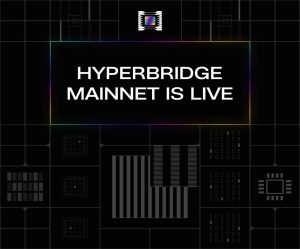
Interpol has issued an international arrest warrant for Do Kwon, the co-founder of the Terra/Luna ecosystem which imploded in May.
Interpol steps in to help South Korean authorities arrest Do Kwon
A few days ago, South Korea had issued an arrest warrant for Do Kwon, but since he was not in South Korea, the arrest was not executed.
Following up on this Korean initiative, Interpol asked law enforcement agencies around the world to locate and arrest the accused. Indeed, the judiciary in South Korea is accusing him of having personal responsibility in the collapse of Terra/Luna, and thus also in the huge losses of money from investors.
There is speculation that Do Kwon is currently in Singapore, where the new organization behind the new Terra 2.0 project is based. If so, it might not be difficult now for local authorities to locate and arrest him on an Interpol warrant.
However, it is also possible that he may have fled the Southeast Asian city-state specifically to escape capture.
After the arrest warrant was issued in South Korea, he had made it known that he would like to cooperate with law enforcement, but he did not turn himself in. In fact, he stayed well away from South Korea in order to avoid arrest.
It will now be much harder for him to escape arrest, since it is not just South Korean law enforcement agencies that want to arrest him anymore, but those from halfway around the world.
The South Korean charge is that he has committed five felonies, including violating the Capital Markets Act.
Do Kwon is Korean, and initially his Terraform Labs was based in South Korea. Only in 2022 did he move everything to Singapore before the collapse, which is why the Korean judiciary is investigating him and his organization.
Moreover, the same arrest warrant issued by South Korean prosecutors had as its motivation precisely the concrete risks of him fleeing because of his relocation to Singapore.
The price of LUNA
Following the release of today’s news, the price of the new cryptocurrency LUNA fell 8% returning just above $2 after rising above $6 on 11 September. However, it had already fallen just above $4 on 12 September, so this was only a temporary spike.
It is worth noting that the current price is higher than it was until 9 September, when it was hovering below $2.
However, it remains 88% lower than the all-time high of almost $19 touched a few days after its launch in late May.
It is worth mentioning that LUNA is the new cryptocurrency launched after the implosion of the old Terra/Luna ecosystem. The previous cryptocurrency has now been renamed Luna Classic (LUNC), while the new one has taken the name LUNA.
Today, however, LUNC is also losing more than 8%, losing a total of 50% in the past two weeks. It is important not to forget that Terra Classic is a de facto dead project, and LUNC survives in the markets only on pure speculation. In theory, the project that is continuing to operate is the new Terra, also called Terra 2.0, which has effectively taken the name away from the previous project that imploded in May, renamed precisely Terra Classic.
So while the price fluctuations of LUNC and USTC are purely speculative, in theory those of the new LUNA should refer to the evolution of the still ongoing project. However, if the co-founder, and main actor, Do Kwon is arrested, the development of the new Terra 2.0 project could also suffer a major setback.
The uncertain future of the Terra 2.0 project
At this point, it may only be a matter of time before Do Kwon is actually arrested, regardless of where he has taken refuge. It also becomes particularly difficult to imagine that law enforcement officials would be willing to cooperate with him, or that they might think that his role in the collapse of the Terra/Luna ecosystem could be substantially free of significant lawbreaking.
Indeed, not only are South Korean authorities apparently willing to use this case as an example to make clear what is at stake in leveraging cryptocurrencies to absorb money from the market in an illicit way, but it is also possible that they will obtain cooperation with authorities in other countries.
In particular, the issue is a thorny one for Singapore itself, as the Asian city-state would like to become Asia’s most important crypto hub.
However, it appears that Do Kwon is no longer even in Singapore, and has been on the run for days now. He has not posted anything on his official Twitter profile since 17 September.
The fact that he has not turned himself in to either South Korean or Singaporean authorities probably reveals an intent not to turn himself in at all and instead to try to lose track of himself, or to seek refuge somewhere safe from Interpol.
Then again, his behavior has been anything but blameless since May. The very decision to launch the Terra 2.0 project with a new cryptocurrency has puzzled many, not least because it has been known since May that South Korean authorities have been investigating him, accusing him of violating several laws.
However, it is unclear what could realistically happen to the new Terra 2.0 project if he is arrested. But since the South Korean authorities have not only issued arrest warrants against him but also against other members of his team, the long-term future of the Terra 2.0 project looks bleaker than ever.
According to several rumors circulating during the days of the implosion, Do Kwon and his team may also have been playing dirty in those days, which suggests that active responsibility of Terraform Labs toward the implosion of the Terra ecosystem may also emerge in the course of the investigation.
This is therefore still by no means a closed game, and one that could have interesting implications in the future even broader than those known so far. Should the Korean authorities later decide to make an exemplary case out of it, as it seems they might, they may decide to be particularly severe against Do Kwon and his main collaborators, far beyond what is commonly imagined at this time.
The post Interpol: international arrest warrant for Do Kwon appeared first on The Cryptonomist.





















